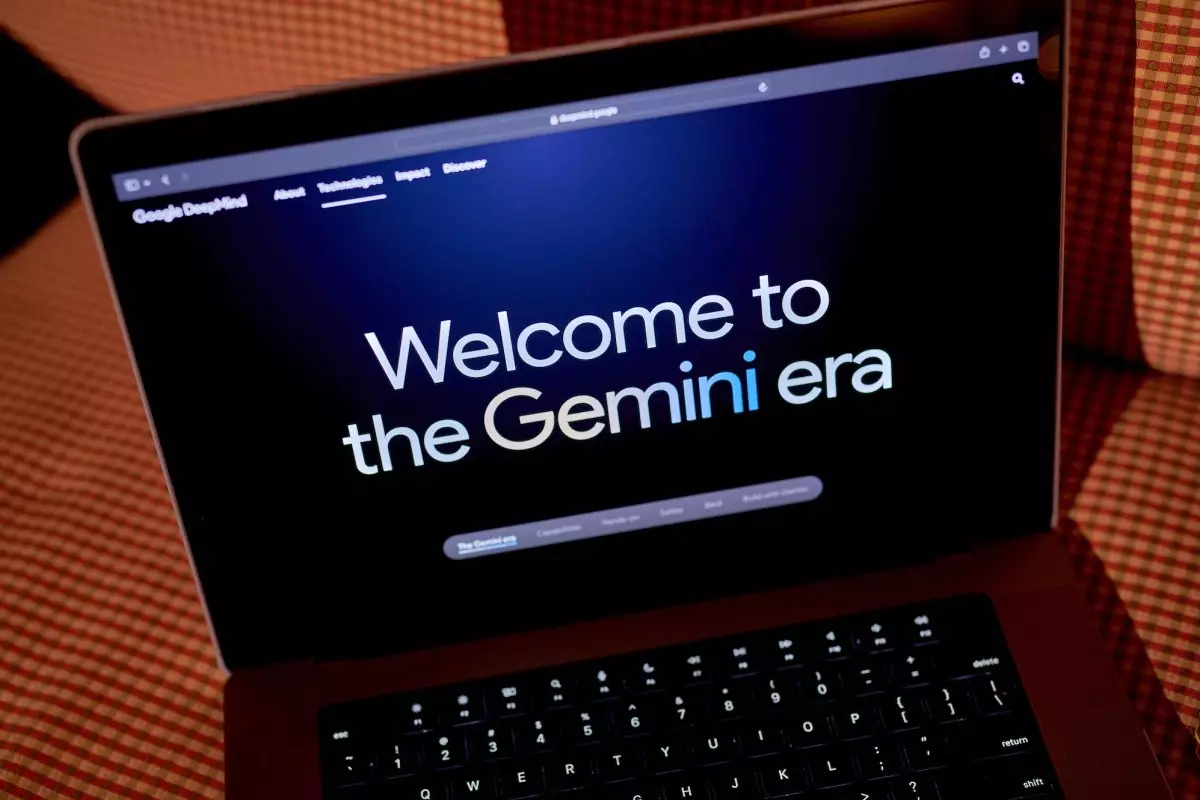The rapid evolution of artificial intelligence has led to fierce competition among leading tech companies. Google, one of the giants in this domain, is currently engaged in a comprehensive evaluation of its Gemini AI model against Anthropic’s Claude. This internal comparison raises significant questions about industry practices, data use, and ethical considerations.
At the heart of Gemini’s development is an extensive evaluation process that involves contractors rating the model’s responses against those produced by Claude. This method signifies a competitive tactic wherein companies do not just aim to outperform their models independently but rather seek to benchmark their performance against established competitors. This scenario reflects a broader trend within the tech industry where the race to enhance AI capabilities is fueled by a constant scrutiny of rival outputs.
Interestingly, the contractors’ evaluations require them to assess each response based on criteria like accuracy and verbosity within a limited timeframe of 30 minutes. This aspect suggests a rigorous process designed to critically analyze the advantages and shortcomings of each model, but also highlights a potential pitfall: the subjective nature of rating AI responses. Moreover, the choice to utilize Claude for these comparisons raises pivotal questions regarding the boundaries of fair competition and intellectual property in the tech industry.
Ethical Implications and Potential Conflicts
The circumstances surrounding this competition bring to light ethical questions about the use of competitors’ models for internal benchmarking. Google’s lack of transparency regarding whether it secured permission from Anthropic to leverage Claude raises concerns about best practices in technological competition. Anthropic’s commercial terms explicitly restrict the use of Claude for creating competing products or training models without express permission. This dichotomy of interests poses potential conflicts that could compromise not only corporate integrity but also the industry’s overall trust.
Furthermore, the fact that Google is a significant investor in Anthropic complicates matters. It blurs the lines between collaboration and competition, creating a scenario where shared interests might inadvertently influence the evaluation process. As contractors began noticing references to Claude within Google’s internal platforms, the query remains: are these comparisons direct tests to enrich Gemini, or do they infringe upon ethical standards of competitive conduct?
Insights into AI Safety and Response Generation
The conversation surrounding response generation highlights stark contrasts between the AI models. Contractors have observed that Claude prioritizes safety by avoiding prompts deemed unsafe, while Gemini’s responses occasionally result in significant safety violations. Reports of Gemini generating inappropriate content raise alarms regarding the reliability and ethical functioning of AI technologies.
The emphasis on different safety measures between these models not only showcases distinct operational philosophies but also inadvertently accentuates the challenges faced by AI developers in ensuring responsible outputs. For instance, Claude’s avoidance of certain prompts reflects a cautious approach to AI ethics, while Gemini’s riskier outputs raise the question of how deeply these models understand and navigate complex social norms.
Amidst these assessments and ethical considerations, representatives from Google have clarified that their comparison practices align with standard industry procedures. Google DeepMind has asserted that while comparison of model outputs is a regular part of their evaluation process, they are not training Gemini on Anthropic’s models. This statement attempts to navigate the narrative by asserting compliance with industry norms, thereby reinforcing that while competitive evaluation exists, it is conducted within legal and ethical boundaries.
However, the challenges brought to the forefront by contractors, particularly their concerns about Gemini’s performance in sensitive areas such as healthcare, indicate a pressing need for stringent oversight in AI capabilities. These worries highlight an essential issue where the quest for advancement must be carefully balanced against the potential for misinformation in critical domains.
As the race to build better AI models continues, the battle between Google’s Gemini and Anthropic’s Claude exemplifies the intricate dynamics of competition. The ongoing analysis of outputs, the ethical implications of testing rival models, and the commitment to safety standards underline a critical juncture for AI development. As we move forward, a deeper understanding of these issues will be vital for fostering innovation while ensuring ethical practices and responsible use of AI technologies. The AI landscape is proving to be as competitive as it is complex, and how companies navigate these challenges will undoubtedly shape the future of artificial intelligence.

